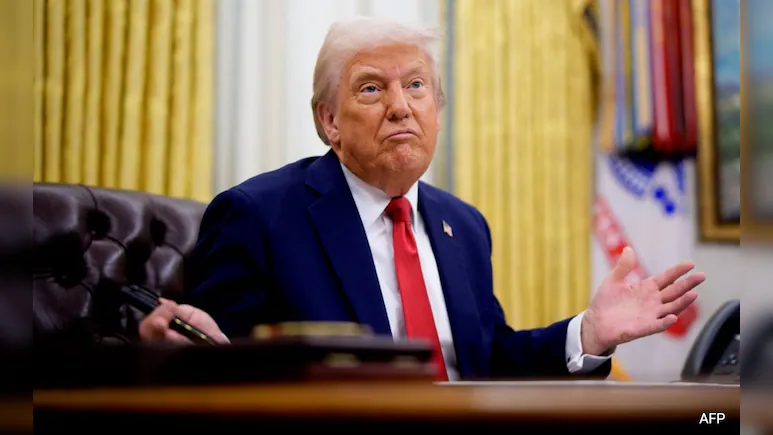From Applause to Aftershocks: How Trump’s Trade Boast Disrupted India-Pakistan Diplomacy
Diplomacy often unfolds in silence—through measured language, strategic patience, and carefully negotiated statements. Yet, in May, former U.S. President Donald Trump broke that quiet rhythm, claiming credit for preventing a war between India and Pakistan by threatening trade penalties. What might work as a campaign punchline brought unwelcome turbulence to a highly sensitive geopolitical equation.
Tensions in the Valley
The events that preceded Trump’s claim were serious. On April 22, a terrorist attack near Pahalgam in Jammu and Kashmir ignited new tensions. In response, India and Pakistan conducted retaliatory air strikes between May 7 and May 10, with both militaries on high alert. A ceasefire was agreed upon on May 10. But as calm returned, Trump took center stage—asserting that his economic threats, specifically the promise (or denial) of U.S. market access, had pulled the nuclear-armed neighbors back from the edge.
Whether fact or fiction, this narrative shifted global focus. It was soon cited by the U.S. government in a filing to the Court of International Trade to justify the use of presidential tariff powers as tools of national security.
More Than Just an Ending—A Narrative Shift
Sometimes, it’s not the conflict itself but the story of its resolution that reshapes strategy. Trump’s version, placing trade above diplomacy, became that disruptive story. It didn’t just blur timelines; it recast power dynamics.
A Blow to India’s Strategic Autonomy
For India, the implications are profound. Since its independence, India has carefully preserved strategic autonomy, engaging global powers without relinquishing sovereign decision-making. Trump’s assertion, that economic pressure could alter India’s military posture, clashes with this foundational principle.
Even more alarming was the perceived equivalence drawn between India and Pakistan. By referring to the nations as equal stakeholders in a bilateral conflict, Trump overlooked a core tenet of India’s policy: that Kashmir is an internal matter complicated by cross-border terrorism—not a two-sided diplomatic issue. This framing undermines India’s global narrative and risks setting dangerous precedents for third-party interference.
Domestically, Indian opposition parties accused the Modi government of diplomatic weakness, while critics in the media argued that the government’s silence suggested complicity—hurting India’s credibility on the world stage.
Diplomatic Fallout and Trade Goals at Risk
This controversy jeopardizes ambitious goals: expanding bilateral trade with the U.S. to $500 billion by 2030, finalizing an “early harvest” trade deal by autumn 2025, and removing long-standing tariff roadblocks. These were outcomes discussed during the Modi-Trump meeting on February 13 this year. But the backlash may now create roadblocks to meaningful progress.
India’s Strategy: Diversify to Hedge
New Delhi has responded pragmatically. To safeguard its autonomy, it is accelerating trade talks with the European Union, bolstering defense ties with France, and reevaluating relations with long-term partner Russia. Even engagement with China, fraught as it is, is being explored more pragmatically. Diversification, once a strategic theory, is now active policy.
Pakistan: A Strategic Embrace of Trump’s Narrative
Meanwhile, Pakistan has amplified Trump’s claim. After years of cold relations with Washington, Islamabad welcomed Trump’s overtures—so much so that it floated the idea of nominating him for a Nobel Peace Prize for his supposed role in the May ceasefire.
However, this embrace masks deeper issues. No amount of external validation can substitute for the internal reforms Pakistan needs. Without improving governance and the economy, reliance on symbolic praise will offer no real security.
Trade as a Tool—or a Weapon?
Trump’s remarks also underscore a broader shift in U.S. foreign policy: trade as an instrument of coercion. The linkage between trade and national security isn’t new, but when tariffs are dangled—or enforced—as punishment or leverage during geopolitical standoffs, trust suffers.
If market access becomes conditional on political alignment, then the idea of trade as a win-win strategy fades. Countries will begin to question whether any agreement can survive ideological or policy differences. Once trust erodes, rebuilding it is a monumental task.
Rebalancing the India-U.S. Partnership
Despite these headwinds, the India-U.S. relationship is rooted in more than economics. Shared democratic values, mutual strategic interests in the Indo-Pacific, and deepening people-to-people ties anchor the partnership.
Still, for the relationship to endure and mature, the United States must signal that it respects India’s autonomy and understands the delicacy of South Asian geopolitics. It must acknowledge that the May 10 ceasefire was the result of direct military communication between India and Pakistan—not external threats.
India, for its part, must push forward with its proposed trade agreement by July 9, framing it as a matter of national interest. By doing so, it can defuse the controversy and pave the way for eliminating ‘liberation day’ tariffs, helping unlock larger trade goals.
The Need for Quiet Diplomacy
This moment calls for composure, not theatrics. True statesmanship lies not in rally applause but in quiet resolve. For both New Delhi and Washington, a return to discreet diplomacy could stabilize what has become an unusually turbulent chapter.
Only then can the India-U.S. partnership move forward—not as a stage for self-congratulatory claims, but as a serious alliance between two sovereign powers with shared interests and mutual respect.



